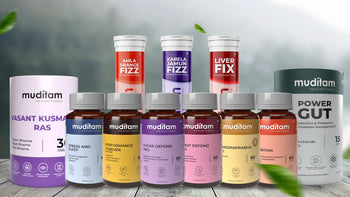12 Warning Signs You're Not Drinking Enough Water
Last updated on:
We often hear how important water is for our health — but many of us still go through the day without drinking enough of it. Whether due to a busy schedule, forgetfulness, or just not feeling thirsty, mild dehydration is more common than we realize.
And the signs are not always obvious. By the time you feel thirsty, your body may already be dehydrated. Over time, even mild dehydration can impact energy, mood, digestion, and even sleep quality.
Here are 12 signs your body might be telling you to drink more water — and why staying hydrated should be a daily habit, not an afterthought.
1. Dry Mouth or Bad Breath
Lack of water reduces saliva production. Saliva naturally cleans the mouth and washes away food particles. When it drops, it creates a dry feeling in the mouth — and bad breath often follows.
2. Dark Yellow Urine
Clear or light-yellow urine generally means you're hydrated. If your urine is dark yellow and has a strong odor, it's often a sign that your body needs more water.
3. Headaches or Lightheadedness
When you're dehydrated, the brain temporarily shrinks slightly due to fluid loss, causing tension and discomfort. This can trigger dull headaches, dizziness, or a heavy-headed feeling.
4. Dry Skin or Lack of Glow
Your skin is one of the first areas to show signs of dehydration. If it feels dull, dry, or flaky — especially despite using creams or oils — upping your water intake might help restore its natural glow from within.
5. Constipation
Water is essential for healthy digestion. When your body lacks fluids, the intestines absorb more water from the waste, making it hard and difficult to pass.
6. Fatigue or Low Energy
If you're feeling tired even after resting, it might not just be lack of sleep — dehydration reduces oxygen flow in the blood, making you feel sluggish or drained without doing much.
7. Muscle Cramps or Stiffness
Dehydrated muscles are more likely to cramp or feel stiff, especially after activity. Staying hydrated helps regulate minerals and fluids in the muscles.
8. Dry or Irritated Eyes
Just like the mouth, your eyes also rely on moisture. Without enough fluids, your eyes may feel dry, itchy, or tired — especially after screen use or in dry weather.
9. Feeling Hungry Soon After Eating
Sometimes, what feels like hunger is actually thirst. If you're craving snacks soon after meals, try drinking a glass of water first and wait a few minutes — the craving may disappear.
10. Poor Concentration or Brain Fog
Even mild dehydration can impair focus, slow down thinking, and make it harder to stay sharp. If you find yourself mentally drifting, your brain might just need more water.
11. Irritability or Mood Swings
Our mood is more closely tied to hydration than we think. Low water intake can lead to short temper, anxiety, or lack of patience, especially during long workdays or travel.
12. Trouble Sleeping or Staying Asleep
Hydration affects everything — including sleep. When the body lacks water, muscles may feel tight or the body temperature may fluctuate, making it harder to rest deeply.
Also, dehydration may increase the effects of stress or restlessness at night, making it difficult to relax mentally and physically.
If you find yourself staying awake despite physical tiredness or dealing with a racing mind, supporting your night routine can help. In addition to drinking enough water, some people find comfort in gentle herbal support. For instance, many include a calming product like Muditam Ayurveda’s Stress & Sleep as part of their nightly ritual. It combines traditional Ayurvedic herbs that help quiet the mind and support deeper rest — especially helpful when dehydration and mental fatigue are interfering with good sleep.
How to Stay Hydrated Every Day
- Start your morning with water: Before tea or coffee, drink 1–2 glasses of room-temperature water.
- Carry a water bottle: Keep it within reach while working or travelling.
- Eat water-rich foods: Fruits like watermelon, oranges, cucumbers, and soups contribute to hydration.
- Set gentle reminders: Especially if you forget to drink during the day.
- Avoid excess caffeine or sugary drinks: They can dehydrate the body over time.
Conclusion
Water is often overlooked — but it’s the foundation of nearly every function in your body. From energy to skin health, digestion to sleep, hydration silently supports you in more ways than you realize.
So the next time you feel low, tired, or “off,” pause and ask yourself: Have I had enough water today?
Sometimes, the solution isn’t more caffeine or food — it’s simply a glass of water and a few moments of care.
Listen to your body. It’s always sending signals — we just need to pay attention.











